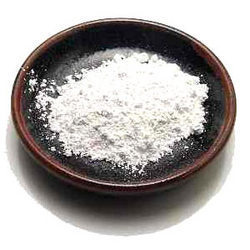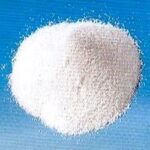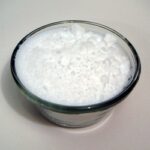Hydrated Lime (Calcium Hydroxide)
Hydrated lime, also known as calcium hydroxide, is a versatile material that has been used in construction for thousands of years. Its properties make it an important component in a wide range of applications, including soil stabilization, masonry, plastering, and as a binding agent in asphalt and concrete.
Hydrated lime is a fine white powder made from limestone. The process of making hydrated lime involves heating limestone to a high temperature to produce quicklime (calcium oxide), which is then mixed with water to produce calcium hydroxide, or hydrated lime.
Uses of Hydrated Lime in Construction
- Soil Stabilization
Hydrated lime is often used in soil stabilization to improve the strength and stability of weak soils. By mixing hydrated lime with soil, it increases its plasticity, allowing it to be compacted to form a solid base for construction. This method is particularly useful in areas where the soil is prone to erosion, such as hillsides and embankments.
- Masonry and Plastering
Hydrated lime is used as an additive in masonry and plastering to improve the workability of the mortar and prevent cracking. It also helps to reduce shrinkage during the drying process, resulting in a more durable finish.
- Binding Agent
Hydrated lime can be used as a binding agent in asphalt and concrete. When mixed with other materials, it creates a strong and durable structure. Hydrated lime is particularly useful in hot-mix asphalt, where it improves the workability of the mix and reduces the risk of cracking.
Benefits of Hydrated Lime
- Durability
Hydrated lime is highly durable and can withstand the elements, making it ideal for use in construction. It is resistant to weathering, erosion, and chemical attack, making it a reliable and long-lasting material.
- Flexibility
Hydrated lime is a flexible material that can be used in a variety of applications. Its versatility means it can be used in a range of construction projects, from large-scale infrastructure projects to small-scale repairs.
- Sustainability
Hydrated lime is a sustainable material that is readily available and environmentally friendly. It has a low carbon footprint and can be recycled, making it an attractive option for environmentally conscious construction projects.
Hydrated lime is a versatile material that has been used in construction for thousands of years. Its durability, flexibility, and sustainability make it an attractive option for a wide range of applications, including soil stabilization, masonry, plastering, and as a binding agent in asphalt and concrete. Whether you’re working on a large-scale infrastructure project or a small-scale repair, hydrated lime is a reliable and long-lasting material that can help you achieve your construction goals.
- Agriculture: Hydrated lime is commonly used in agriculture to adjust the pH level of soil. It can help to neutralize acidic soils, making them more alkaline, which can improve the soil’s fertility and crop yield. Hydrated lime can also be used as a disinfectant to control plant diseases.
- Water Treatment: Hydrated lime is used in water treatment plants to soften water and remove impurities. It can help to adjust the pH level of water, making it more suitable for drinking and industrial use.
- Food Industry: Hydrated lime is used in the food industry to improve the texture and flavor of various foods, such as pickles, fruits, and vegetables. It is also used as a food additive to regulate acidity levels and act as a preservative.
- Chemical Industry: Hydrated lime is used in the chemical industry to produce calcium-based chemicals, such as calcium stearate and calcium chloride. It is also used in the production of paper, textiles, and leather.
- Waste Treatment: Hydrated lime is used in waste treatment plants to treat industrial waste and sewage. It can help to neutralize acidic waste, reduce odors, and kill harmful bacteria.
- Mining: Hydrated lime is used in the mining industry to extract metals from ores. It can help to neutralize acidic waste and improve the efficiency of the mining process.
Hydrated lime ( Calcium Hydroxide or Slaked Lime ), also known as calcium hydroxide or slaked lime, has various applications in the construction industry due to its chemical properties and versatility.
Here are some common uses of hydrated lime in construction:
Mortar and Plaster: Hydrated lime is used as an ingredient in mortar and plaster mixtures. It improves workability, plasticity, and cohesiveness, making the mortar easier to handle and spread. Hydrated lime also enhances the bond between the mortar and masonry units, improving the overall strength and durability of the structure.
Soil Stabilization: Hydrated lime is used for soil stabilization in construction projects. When mixed with clayey soils, it helps to reduce plasticity and improve load-bearing capacity. It also reduces the shrink-swell properties of expansive soils, minimizing the risk of foundation damage. Hydrated lime-treated soils have improved compaction, reduced moisture susceptibility, and increased long-term stability.
Asphalt Modification: Hydrated lime can be added to asphalt mixtures to enhance their performance. It acts as an anti-stripping agent, improving the adhesion between the asphalt binder and aggregate particles. This helps to prevent moisture damage and increase the lifespan of the pavement.
Waste and Effluent Treatment: Hydrated lime is utilized in the treatment of various wastes and effluents in construction projects. It can be used to neutralize acidic wastewater, control pH levels, and precipitate heavy metals. Hydrated lime is also employed in the stabilization and solidification of hazardous and contaminated materials.
Masonry Conservation: Hydrated lime is used in the restoration and conservation of historic masonry structures. It is mixed with traditional materials such as lime putty, sand, and aggregates to create compatible mortars and plasters that match the original construction. Hydrated lime allows for the breathability and flexibility of the masonry, minimizing the risk of damage caused by moisture.
pH Adjustment: Hydrated lime is employed for pH adjustment in various construction applications. It can be used to neutralize acidic soils, control pH levels in concrete mixtures, and stabilize pH in wastewater treatment systems.
Precipitation and Flocculation: In water treatment processes, hydrated lime is used for the precipitation and flocculation of impurities. It aids in the removal of suspended particles, heavy metals, and phosphates from water, contributing to improved water quality.
It is important to note that the specific application and dosage of hydrated lime may vary depending on the project requirements, local regulations, and engineering considerations. Consulting with experts and following recommended guidelines is crucial to ensure the appropriate use of hydrated lime in construction.
In conclusion, hydrated lime has numerous applications beyond the construction industry, including agriculture, water treatment, food, chemical industry, waste treatment, and mining. Its versatility and usefulness make it an essential material in many industries and applications.






